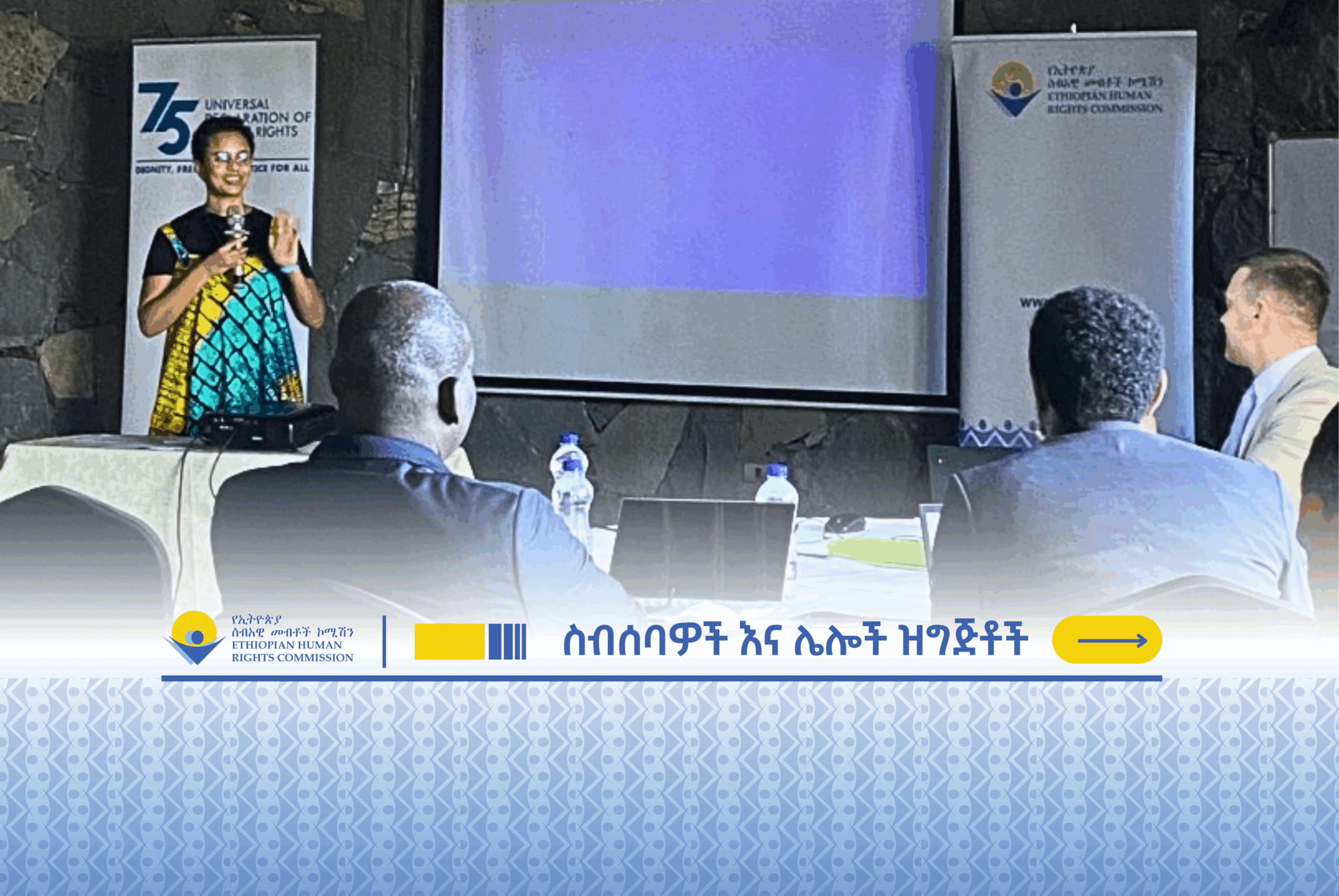The Ethiopian Human Rights Commission (EHRC), in collaboration with the United Nations Office of the High Commissioner for Human Rights (OHCHR) and the Ministry of Justice of the Federal Democratic Republic of Ethiopia, organized a Workshop for the National Mechanism for Reporting and Follow-up (NMRF) and the Inter-Ministerial Committee established to prepare Ethiopia’s state report under the International Convention on the Elimination of All Forms of Racial Discrimination (ICERD) and to update Ethiopia’s Common Core Document. The workshop was held from November 4 to 7, 2025 in Bishoftu.


The Workshop brought together participants from various State institutions, including representatives of the Ministry of Justice, Ministry of Foreign Affairs, Ministry of Women and Social Affairs, Ministry of Education, Ministry of Planning and Development, the Federal Police Commission, and the Refugees and Returnees Service. EHRC acknowledged its long-standing partnership with the Ministry of Justice and OHCHR in supporting Ethiopia’s NMRF and welcomed the State’s decision to submit a state report on ICERD 17 years after the previous submission in 2008. It further emphasized the significance of this milestone in light of the 60th anniversary of ICERD’s adoption in 1965.

The Workshop featured sessions on reporting obligations and processes; Ethiopia’s National Mechanism for Implementation, Reporting and Follow-up (NMIRF); the key tenets of ICERD; key elements of ICERD reports, applicable guidelines, procedures, and best practices including gender mainstreaming; and overview of the Concluding Observations adopted by the Committee on the Elimination of Racial Discrimination (CERD) following Ethiopia’s last report in 2008. This was followed by practical sessions on report preparation, where useful initial inputs on key issues, indicators, and data sources were identified on the progress and challenges of implementing the Convention. Participants also developed a roadmap outlining the next steps in the reporting process, including timelines for data collection, verification, analysis, and report drafting.
Finally, the workshop reviewed Ethiopia’s Common Core Document (CCD), with a view to updating it, and identifying key areas for revision, sources of information, and institutional responsibilities.

Joseph Noubadoum, Deputy Country Representative of OHCHR-EARO, underscored the importance of reporting under the ICERD, particularly considering the significant backlog of reports on the Convention. He expressed his appreciation to EHRC for organizing the Workshop and to the Ministry of Justice for its leadership role in coordinating the reporting process.

Yesuf Jemaw, Director of International Cooperation on Legal Affairs from the Ministry of Justice highlighted the Ministry’s role in the state report preparation process, noting the importance of robust engagement by all relevant stakeholders. He added that EHRC’s continued support has been crucial in the submission of timely and quality reports in compliance with Ethiopia’s reporting obligations.”
